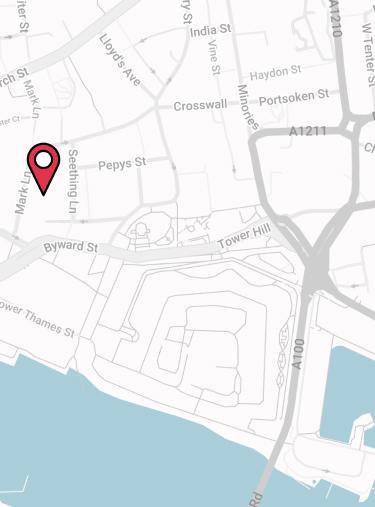The 2022 Covid Pandemic Return to Work Survey
Welcome to the 2022 Drewberry™ Covid-19 Pandemic Return to Work Survey, conducted by YouGov.
Employers haven’t always embraced hybrid and remote ways of working. However, with the first lockdown in March 2020, many businesses across the UK had to shut their office doors and ask their employees to work from home.
Fast forward 2 years, and employers have opened their doors again. But what has changed, and how do employees really feel about their return to work?
We’ve surveyed 1,000 workers, aged between 18-55, from small-medium businesses in the UK to find out.
Key Findings
- Working Patterns Significantly Changed Post-Pandemic
More people are working from home than ever before. Pre-Covid, 73% of employees said that they were working full time in the office, compared to only 27% at the time of our survey. - Full-Time Office Workers Want Flexible Working
44% of those back in the office full time want their employers to offer a hybrid of home and office working. - Workers Return to Office on Average 2 Days a Week
36% of employees who have the option of hybrid working go into the office on average 2 days a week. - Employees Feel Safe Returning to the Office
The thought of returning to the office post-pandemic left some people feeling anxious. However, 71% of employees feel that their employers have done enough to make them feel safe. - Costs, Covid Risk and Reduced Work-Life Balance Dampen Enjoyment of Office Return
Additional costs (48%), more risk of catching Covid (42%) and reduced work-life balance (35%) are the 3 biggest negatives for employees returning to the office. - Being Reunited With Co-Workers Brings Joy to Staff Returning to the Office
58% of employees said that being around their co-workers was what they most enjoyed about being back in the office. - 1 in 5 Employees Feel Return to Office Has Increased Productivity Levels
20% of employees who have returned to the office feel their productivity has improved. This is mainly due to more communication (51%), office buzz (47%) and a better routine (47%). - Office Return Improves Mental Health for 1 in 4 staff
Returning to the office has positively affected employees’ mental health, with 23% saying they felt an improvement. - 1 in 4 Staff Sees Home Life Worsen Since Returning to Office
23% of employees feel their home life has worsened since returning to the office. The main reasons are a lack of sleep due to commute (68%), less time for housework (57%) and feeling more stressed (53%).

Top Stories From Our Survey
- 44% of Employees Who Have Returned to the Office Full Time Want a Hybrid Way of Working
- The Effects Returning to the Office Is Having on Your Employees’ Productivity & Mental Health
- Additional Costs, Risk of Catching Covid & Worse Home Life Top Reasons Employees Aren’t Enjoying the Return to Office Life
How Covid Has Changed the Way We Work and What Employees Really Think About It
We wanted to understand what employees really thought about these changes both positive and negative and to get a gauge of how employees feel about returning to the office.
Significant Shift in Working Patterns Post-Pandemic | |
|---|---|
🏢 | 🏢🏠 |
🌍 | 👨💼 | What Employees Really Think About Returning to the Office |
📅 | 👍 |
🥰 | 😒 | How The Office Return Is Affecting Productivity, Health and Home Life |
📈 | 👍 |
🧠 | 🧍♂️🧍♀️🧍♂️🧍♀️ |
💪 | 😮💨 |
🏚️ | 😩 |
Office Working No Longer the Norm
As things continue to get closer to what we are used to, it is clear there has been a significant shift in working patterns and traditional office working is no longer the norm.
Pre-Covid: Majority of Employees Worked Full Time in the Office
73% of employees said they went into the office every day before Covid, compared to only 28% who were hybrid working or fully remote.
Majority of Employees Now Work in a Hybrid Way
The working landscape is very different to what it was. Even though most restrictions have been lifted and offices have opened their doors to staff once again, full-time office working seems to be a thing of the past.
When asked about their working pattern post-pandemic, most employees said they now work using a hybrid model.
- 40% of employees now hybrid working, compared to just 19% pre-lockdown
- 32% now fully remote, compared to only 9% of employees before Covid
- Only 27% of employees are back in the office full time, compared to 73% pre-pandemic
Employees Return to Office on Average 2 Days a Week
Of the employees hybrid working, 36% said they go into the office 2 days a week, on average. This was closely followed by 31% saying they went in 1 day a week.
What Employees Really Feel About Returning to the Office
No one could have predicted just how well employees would adjust to working from home.
Despite this, some employers still reverted back to their old ways of working and asked employees to return to the office full time. But is this what employees want?
Those Working Full Time In The Office Want A Hybrid Way Of Working
44% of the 274 respondents who said they were back working full time in the office said they would prefer the choice of hybrid working.
We also found that working from home was the second most important benefit for employees in the Drewberry™ 2022 Workplace Pension Survey…
Employers may be missing out by not offering their employees hybrid working. This simple yet highly effective employee benefit can increase employee productivity, improve job satisfaction and reduce stress levels.
Not too bad for something that costs nothing to implement.
Employers Handled Return to Office Well
Returning to the office didn’t come without its challenges. Plans and procedures were put in place to protect the health and wellbeing of employees.
Despite the exceptional circumstances, employers generally did a good job. When asked whether they thought their employer handled their return to work well, 62% of respondents agreed.
Employers Have Made Employees Feel Safe
Not only did employees feel their employer handled their return to work well, but 71% also felt their employer made their work environment Covid-safe.
The Good & The Bad – Returning to the Office
Some people thrived working from home, not wanting to return to the office. Others found it a real challenge and couldn’t wait to get back.
So, with working life getting back to what we are used to, what effect has returning to the office had on employees?
Being Back With Co-Workers Best Part of Returning to Office
After working at home for the best part of 2 years, it is no surprise that, when asked what employees most enjoyed being back in the office, they said being around their co-workers.
They also enjoy that returning to the office gives them time away from home and helps them be more productive.
- 58% enjoy being back around their co-workers
- 32% appreciate the time it gives them away from home
- 23% like that they are more productive
Additional Costs and Risk of Covid Dampen Enjoyment of Returning to Office
Although employees enjoy certain aspects of being back in the office, there are some clear drawbacks.
When asked what they least enjoy about being back in the office, the top 3 reasons were additional costs (48%), risk of catching Covid (42%) and reduced work-life balance (35%).
Office Return Improves Productivity and Mental Health
Working from home comes with a whole different set of distractions that can prevent employees from getting things done. For some, returning to the office was exactly what was needed to regain focus and increase productivity.
23% of respondents said they felt their productivity levels had increased since returning to the office.
It wasn’t just productivity levels that improved, either. Another 23% said they felt their mental health had also improved.
More Communication, Office Buzz and Better Routine Top Reasons for Improved Productivity
When asked why they thought their productivity had improved since returning to the office, 51% of respondents said it was down to better communication.
This was closely followed by office buzz helping employees to focus (47%) and having a better daily routine (47%).
Being Reunited With Co-Workers Improves Mental Health
When asked why they felt their mental health had improved since returning to the office, 74% said it was due to being back around their co-workers.
This was followed by having a better daily routine and a better work-life balance.
- Being around co-workers (74%)
- Better daily routine (49%)
- Improved work-life balance (32%)
Top Reasons for Decline in Productivity and Mental Health
For others, being back in the office hasn’t had such a positive effect, with 20% of respondents saying their productivity and mental health had become worse since returning.
More Distractions, Daily Commute and Worse Work-Life Balance
The top 3 reasons respondents felt there had been a decline in their productivity levels were:
- More distractions in the office (80%)
- The daily commute (59%)
- Feeling more stressed (38%)
Employees reported a poorer work-life balance, the daily commute and fear of becoming unwell as the 3 main reasons for their mental health declining since returning to the office.
Home Life Takes a Hit Since Returning to the Office
It’s not just the mental health and productivity of some employees that seems to have worsened since returning to the office – their home life is taking a hit, too.
When asked, ‘Has your home life changed since being back in the office?’ 23% of employees said it had become worse.
Lack of sleep, less time for housework and feeling more stressed were the main reasons employees felt there had been a decline.
In Summary…
The working landscape we find ourselves in today is very different to what it was just a few years ago.
Hybrid and remote working may have become the ‘new norm’ and the preferred way to work for most employees. However, there is still a need for traditional office working for a lot of people.
Hybrid and home working certainly have their advantages, but it simply cannot replace being in the office for some employees.
So, before implementing a blanket approach, employers need to listen to how their employees want to work. From there, they can consider which ways of working suit their business on the whole.
Some employees may thrive working from home 4 days a week, whereas others may want to be back in the office full time. It’s all about balance and providing employees with different options.
Share Our Survey Results
Contact Us
125-135 Preston Road
Brighton
BN1 6AF
Cookies
Drewberry™ uses cookies to offer you the best experience online. By continuing to use our website you agree to the use of cookies including for ad personalization.
If you would like to know more about cookies and how to manage them please view our privacy & cookie policy.








